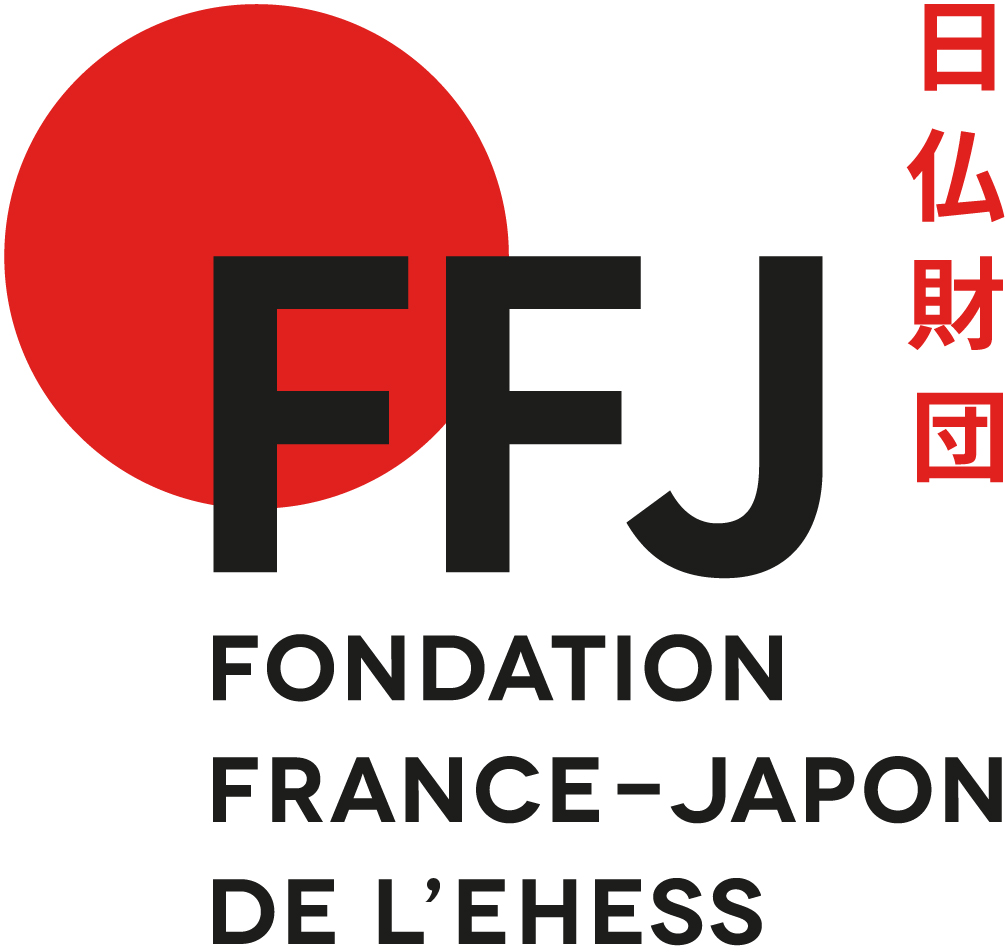LA LETTRE DE LA FONDATION FRANCE-JAPON DE L'EHESS
No 2017-02
Juin 2017
No 2017-02
Juin 2017
1- Éditorial
A New Partnership with Toyota, a New Step in the Development of the FFJ
Sébastien Lechevalier, Président de la Fondation France-Japon de l’EHESS
Sébastien Lechevalier, Président de la Fondation France-Japon de l’EHESS
Toyota Motor Corporation and the EHESS concluded a new partnership to reinforce our joint engagement in understanding and designing the mobility of the future and its social infrastructure. The Research Chair «Future Transportation System and Infrastructure in Europe and in Emerging Countries» was established in April 2017 for a period of 5 years until 2022. Its objective is to build effective research frameworks on future changes in the transportation sector with the horizon of 2030-2050, in the line of Toyota’s commitment in innovating products and systems, and growing in a sustainable way that is beneficial for the company, the environment and society as a whole. The project is aimed at conducting surveys on past, present and future societies in mobility and in infrastructure. From the point of view of the development of the France-Japan Foundation of the EHESS, this partnership marks a real turning point because it is the first chair of CEAFJP funded by a Japanese company, Toyota Motor Corporation becoming one of our major strategic Japanese partners after the signing of the memorandum concluded between the Japan Science and Technology Agency and the EHESS in June 2015. We hope that other Japanese public institutions and industry stakeholders will soon join our consortium.
From a scientific point of view, the creation of this chair aims to enlarge our collaborative networks at European level and to reinforce a multidisciplinary perspective mobilizing researchers in the field of archeology, cognitive sciences, demography, design, economics, history, linguistics, management studies, science and technology studies and sociology. This initiative already involves the members of the EHESS, of the CNRS and of the PSL Research University as well as European partner institutions. We are considering many pathways, conventional and alternatives technologies, new mobility business models, various policy types, and people’s behavior in these evolving dynamics. Our research project covers several major subtopics such as youth mobility, urbanization in the developing cities of Africa, new technology for people with reduced mobility, and the implications of artificial intelligence. With this end in mind, some open questions still need to be addressed. You are welcome to take part in this endeavour with us.
From a scientific point of view, the creation of this chair aims to enlarge our collaborative networks at European level and to reinforce a multidisciplinary perspective mobilizing researchers in the field of archeology, cognitive sciences, demography, design, economics, history, linguistics, management studies, science and technology studies and sociology. This initiative already involves the members of the EHESS, of the CNRS and of the PSL Research University as well as European partner institutions. We are considering many pathways, conventional and alternatives technologies, new mobility business models, various policy types, and people’s behavior in these evolving dynamics. Our research project covers several major subtopics such as youth mobility, urbanization in the developing cities of Africa, new technology for people with reduced mobility, and the implications of artificial intelligence. With this end in mind, some open questions still need to be addressed. You are welcome to take part in this endeavour with us.
2 - Actualité de la FFJ
Launch of GRIPS-CSIS-EHESS «Asia-Euro Policy Dialogue» website.
LAsia-Euro Policy Dialogue (AEPD) is the global policy research project, which aims to encourage exchanges among ASEAN countries, Europe and Japan on Southeast Asia’s current reality and beyond.
This project attempts to increase awareness on the political and economic significance of Southeast Asia in the international community and also to further operationalize the policy lessons for the sake of ASEAN countries by means of sharing such experiences and knowledges that Europe and Japan has gained in the past.
The consortium is commposed: GRIPS Alliance (Japan), CSIS (Indenesia), EHESS (France), and financed by Japan Foundation.
e held in Jakarta Indonesia.The purpose of the Forum is to provide an opportunity for prominent researchers and policy-makers to exchange views and opinions on the variety of policy areas and disseminate widely such views and opinions in order to contribute to better understanding of the region and to provide concrete inputs to policy making in Southeast Asia, Europe and Japan. There will be participants from Southeast Asia, Europe, and Japan, as well as regional partners such as China, Australia and United States.
Please visit our website :
http://www3.grips.ac.jp/~aepd/en/index.html
LMay 25th & 26th 2017,
Meeting of the INCAS project «Understanding institutional change in Asia: A comparative perspective with Europe»
Meeting of the INCAS project «Understanding institutional change in Asia: A comparative perspective with Europe»
Date: May 25th & 26th 2017,
Venue: St Antony’s College, University of Oxford
This workshop has received funding from the European Union’sHorizon2020 research and innovation programme under the Marie Skłodowska-Curie grantagreement No 645763.
Speakers:
Mari sako (Saïd Business School), Robert Boyer (EHESS), Shinichi Horita (Waseda University), Yves Tiberghien (The University of British Columbia), Sébastien Lechevalier (EHESS), Katsuyuki Kubo(Waseda University), Thi Bhuong Thanh Ngyuen(Waseda University), Hideo Owan (The University of Tokyo), Gregory Jackson (Freie Universität Berlin), Pengda Fan (Waseda University),)
Venue: St Antony’s College, University of Oxford
This workshop has received funding from the European Union’sHorizon2020 research and innovation programme under the Marie Skłodowska-Curie grantagreement No 645763.
Speakers:
Mari sako (Saïd Business School), Robert Boyer (EHESS), Shinichi Horita (Waseda University), Yves Tiberghien (The University of British Columbia), Sébastien Lechevalier (EHESS), Katsuyuki Kubo(Waseda University), Thi Bhuong Thanh Ngyuen(Waseda University), Hideo Owan (The University of Tokyo), Gregory Jackson (Freie Universität Berlin), Pengda Fan (Waseda University),)
Adrianne Sala (EHESS), Jan Niggemeier (Freie Universität Berlin), Hugh Whittaker (University of Oxford)
For more information:
EHESS Has Moved New Headquarters to 54 boulevard Rapsail /
The EHESS moved its headquarters to 54, boulevard Raspail, 75006, Paris FRANCE. Since the early 1970s, the EHESS was housed at 54 Boulevard Raspail in Paris, in the same building as the Maison des Sciences de l’Homme, founded by Fernand Braudel. From the very beginning, it was the seat of a number of influential research centers that provided an intellectual home for some of the greatest historians, sociologists, anthropologists, and philosophers of the time including: Pierre Bourdieu, Jacques Derrida, François Furet, Françoise Hértier, Claude Lévi-Strauss, and Jean-Pierre Vernant.
June 5-30, 2017/ 2017年 5 月30日
Varieties of Liberalization and the New Politics of Social Solidarity :
conference series by Steven Vogel (University of California, Berkeley)
Varieties of Liberalization and the New Politics of Social Solidarity :
conference series by Steven Vogel (University of California, Berkeley)
Marketcraft Japanese-Style: What Japan Tells Us About the Art of Making Markets Work
Date: June 14th 2017, 13:00 - 15:00
Venue: EHESS (54 bd Raspail 75006 Paris) Room A07_51 (7th Floor)
In the context of Sébastien Lechevalier’s seminar «Comprendre le changement institutionnel en Asie. Une
perspective comparée avec les États-Unis et l’Europe»
Marketcraft: What Does It Really Take to Make Markets Work?
Date: June 16th 2017, 14:00 - 16:00
Venue: EHESS Marseille (Centre de la Vieille-Charité, 2, rue de la Charité 13002 Marseille)
Marketcraft: How Governments Make Markets Work
Keynote Lecture: Marketcraft Japanese-Style: What Japan Tells Us About the Art of Making Markets
Date: June 14th 2017, 13:00 - 15:00
Venue: EHESS (54 bd Raspail 75006 Paris) Room A07_51 (7th Floor)
In the context of Sébastien Lechevalier’s seminar «Comprendre le changement institutionnel en Asie. Une
perspective comparée avec les États-Unis et l’Europe»
Marketcraft: What Does It Really Take to Make Markets Work?
Date: June 16th 2017, 14:00 - 16:00
Venue: EHESS Marseille (Centre de la Vieille-Charité, 2, rue de la Charité 13002 Marseille)
In the context of Valeria Siniscalchi, Alan Kirman and Miriam Teschl’s seminar « Marché/Marchés. Approches interdisciplinaires des économies »
The U.S. Market Model: Why the World’s ‘Freest’ Market is the Most Heavily Governed
Date: June 26th 2017, 9:00 - 11:00
Venue: EHESS (105, boulevard Raspail), Room 12
In the context of Romain Huret’s seminar «L’État dans les Amériques»
Marketcraft: How Governments Make Markets Work
Date: June 26th 2017, 17:00 - 19:00
Venue: EHESS (105, boulevard Raspail), Room 13
In the context of the EHESS International Seminar
Keynote Lecture: Marketcraft Japanese-Style: What Japan Tells Us About the Art of Making Markets
Date: June 28th 2017, 11:00-12:00
Venue: Sciences Po (27, Rue Saint-Guillaume, 75007 Paris)
In the context of the 6th French Network for Asian Studies International Conference (FNASIC)
For more information :
State, firms, and sustainable economic growth: A comparative analysis of Spain and Korea
Angela GARCIA CALVO (University of California San Diego)
Angela GARCIA CALVO (University of California San Diego)
- Date : Tuesday June 27th 2017, 9:00-11:00
- Lieu : EHESS, salle A07-37 (54 boulevard Raspail 75006 Paris, 7th floor):
Pour plus d'information
This article proposes the selection model of optimal powertrain for usage conditions especially between Internal Combustion Engine Vehicles (ICE vehicles) and Battery Electric Vehicles (BEVs), which is possible “Disruptive Innovation” stated by Christensen (1997). Using the statistics provided by official data of Japan, author estimated the average of actual maximum driving range of ICE vehicle currently sold. The analysis revealed that the actual fuel efficiency and maximum driving range of ICE vehicles is much lower than nominal one published by OEMs. After that, citing two cases of Japan, author examines the fit between the usage pattern and the choice of power train.
Discussion Paper
Does “Driving Range” really matter? The hidden cost of Internal Combustion Engine Vehicles and the potentially new value proposition of Electric Vehicles
by Hidetada Higashi (Yamanashi Gakuin University)
Does “Driving Range” really matter? The hidden cost of Internal Combustion Engine Vehicles and the potentially new value proposition of Electric Vehicles
by Hidetada Higashi (Yamanashi Gakuin University)
This article proposes the selection model of optimal powertrain for usage conditions especially between Internal Combustion Engine Vehicles (ICE vehicles) and Battery Electric Vehicles (BEVs), which is possible “Disruptive Innovation” stated by Christensen (1997). Using the statistics provided by official data of Japan, author estimated the average of actual maximum driving range of ICE vehicle currently sold. The analysis revealed that the actual fuel efficiency and maximum driving range of ICE vehicles is much lower than nominal one published by OEMs. After that, citing two cases of Japan, author examines the fit between the usage pattern and the choice of power train.
Discussing these cases and analysis, the author conclude that that the driving range of BEV dose not solely matter for optimal choice of powertrain. Rather, the driving range and the fit between usage patterns and the availability of “charging place” jointly affect to the optimal choice.
Pour lire l'article
Pour lire l'article
5- Carnets de chercheurs
New innovation policies in science based economy era: Empirical analysis by linked dataset of scientific papers, patents and firm level financial data.
Kazuyuki Motohashi, (University of Tokyo).
Kazuyuki Motohashi, (University of Tokyo).
Use of genetic engineering in pharmaceutical R&D, quantum physics in semiconductor fabrication process and nanotechnology as a source of new material in chemical and metal products industries; all of these examples show that scientific findings become to be important inputs to industrial innovation.
Continuer à lire le carnet de chercheur...
A study of new technologies of personal mobility and robot suit for the elderly
and persons with disabilities.
Toshiaki Tanaka (The Tokyo University/ Hokkaido University)
and persons with disabilities.
Toshiaki Tanaka (The Tokyo University/ Hokkaido University)
Life innovation is a growth-driving industry that supports the medical, nursing and health-related industries of Japan, the world leader in longevity. Using life innovation to develop new service and manufacturing industries should enable the construction of a sustainable social security system tailored to Japan’s future super-aged society.
Continuer à lire le carnet de chercheur...





